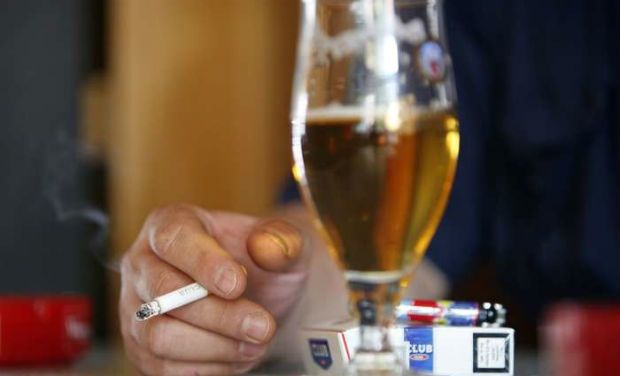Binge drinking dramatically ups mortality rate
The new study also showed social risks of drinking

Hangovers are inevitable when it comes to New Year celebrations, here's how you can banish them.
Washington: A new study has provided a link between drinking behaviors with the overall mortality rate.
A new University of Colorado Boulder study involving some 40,000 people indicates that social and psychological problems caused by drinking generally trump physically hazardous drinking behaviors when it comes to overall mortality rates.
The study showed, for instance, that participants who had experienced an intervention by physicians, family members or friends had a 67 percent greater risk of death over the 18-year study period, said sociology Professor Richard Rogers, lead study author. Those who reported cutting down on social or sports activities because of alcohol use had a 46 percent higher risk of death over the same period.
In contrast, issues like driving after drinking too much or engaging in other physically risky behaviors did not result in a significant uptick in mortality rates.
The new study also showed social risks of drinking, from losing jobs to having spouses threaten to leave, were equally or more strongly linked to mortality than physiological consequences of alcohol abuse like withdrawal jitters or becoming physically ill.
One of the most unexpected findings was that of those who identified themselves as light drinkers, consuming less than one drink a day, 48 percent reported having some problem with alcohol in the 12 months prior to the survey.
The research data allowed the CU-Boulder team to investigate the mortality associated with 41 separate drinking problems including drinking more than intended, unsuccessfully trying to cut back, driving a car after drinking too much, losing ties with friends and family, missing work with hangovers, drinking more to get the same effect, depression and arrests.
It was also found that 23 percent started drinking without intending to, 20 percent drank longer than expected and 25 percent experienced a strong urge to drink. For those who experienced a strong urge to drink over the past year, 19 percent were light drinkers, 40 percent were moderate drinkers and 57 percent were heavy drinkers.
Current drinkers who found it difficult to stop once they started had a 15 percent higher risk of death over the follow-up period; those who acknowledged going on a drinking bender during the past 12 months had a 54 percent higher mortality rate; and those who blacked out during the previous 12 months prior to the assessment had a 22 percent higher mortality rate over the 18-year study period.
The new study also showed those who reported attending Alcoholics Anonymous meetings in the past year had a 45 percent higher risk of mortality.
But those results likely are somewhat misleading in that some of those people could have recently have been diagnosed as alcoholics or were more likely to have severe health, social or legal problems, including required AA attendance. In addition, those who reported attending AA might have had increased risk of mortality due to smoking or may have had other substance abuse problems.
The study is published in the journal Drug and Alcohol Dependence.
( Source : ANI )
Next Story

